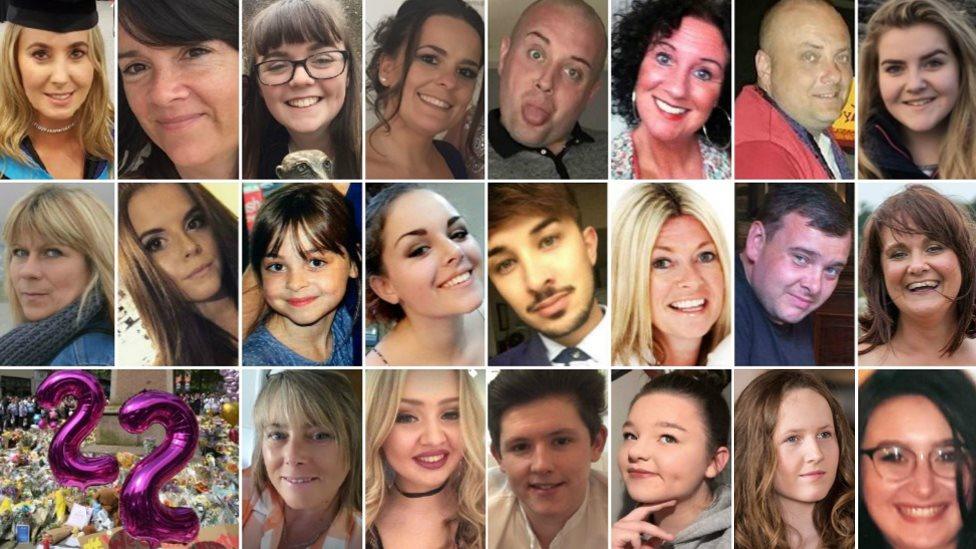Manchester Arena Inquiry: Bomber linked to six MI5 'subjects of interest'
- Published

Top row (left to right): Alison Howe, Martyn Hett, Lisa Lees, Courtney Boyle, Eilidh MacLeod, Elaine McIver, Georgina Callander, Jane Tweddle - Middle row (left to right): John Atkinson, Kelly Brewster, Liam Curry, Chloe Rutherford, Marcin Klis, Angelika Klis, Megan Hurley, Michelle Kiss - Bottom row (left to right): Nell Jones, Olivia Campbell-Hardy, Philip Tron, Saffie-Rose Roussos, Sorrell Leczkowski, Wendy Fawell
The Manchester Arena bomber was known or suspected to be in contact with six people who were being investigated by MI5, a public inquiry has heard.
Twenty-two people were killed and hundreds more injured when Salman Abedi detonated a bomb in May 2017.
Abedi's contacts were linked to al-Qaeda and ISIL, the inquiry was told.
But there was no intelligence indicating he was planning an attack or posed a risk to national security, the legal team for the Home Office said.
The inquiry, scheduled to last into next spring, is looking at events before, during and after the attack including the radicalisation of Abedi and what the security services knew about him.
Delivering an opening statement on behalf of the Home Office and MI5, Cathryn McGahey QC said there were missed opportunities to investigate Abedi more closely in the months before the attack.
But she said: "MI5 did not identify any points where a different course of action would have been likely to lead to a different outcome."

Analysis by Daniel De Simone, BBC News Home Affairs
Most evidence relating to MI5 will be heard in secret at the inquiry for "national security" reasons, but some new facts did emerge in the Security Service's opening statement, raising serious questions about both its judgement and internal processes.
When MI5 closed its investigation into Abedi he was deemed so low risk he was not even referred to the counter extremism scheme Prevent, which receives thousands of referrals each year.
MI5 linked Abedi to at least six people it was actively investigating. He was linked to two of these people in the early months of 2017 - precisely when the attack was being prepared.
Information that did result in him being considered for further investigation was received in mid-2016, but did not generate a response from an internal "priority indicator" until 3 March 2017.
It then took until 8 May to decide whether to have a further meeting - by which time he was in Libya - but it was not scheduled until 31 May.
MI5 today admitted a "missed opportunity" for failing to request that Abedi be stopped when re-entering the UK, which he did five days before the attack itself on 22 May that year.

Ms McGahey said despite Abedi coming to the attention of MI5 several times in the years before the bombing, "there was no intelligence to indicate that he was engaged in attack planning or otherwise posed a risk to national security".
At the time of the attack, Abedi had been identified "for further low-level investigation to identify whether he had re-engaged in Islamist extremist activity," she said.
Ms McGahey said MI5 admitted it received intelligence on Abedi on two occasions in months before the attack.
"In retrospect this intelligence was highly relevant to the planned attack but the significance of it was not fully appreciated at the time," she said.
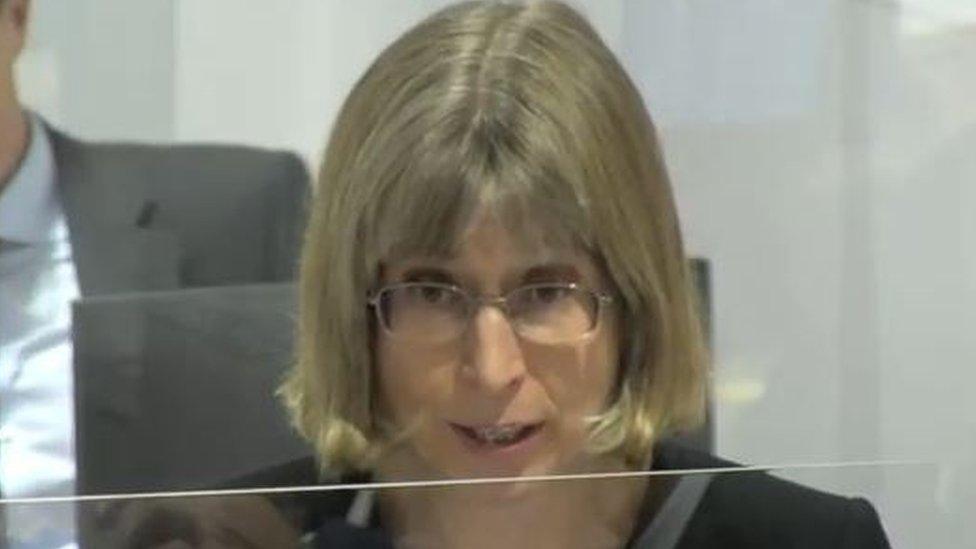
Cathryn McGahey QC said at the time of the attack Abedi had been identified "for further low-level investigation"
She told the inquiry at Manchester Magistrates' Court that MI5 cannot provide more details about this in an open hearing.
"There is no question of secrecy being used to conceal failure", she said. "MI5 has nothing to hide from this inquiry."
Ms McGahey said MI5 had provided unfettered access to the inquiry and information has been withheld from core participants only when necessary to protect national security.
Earlier on Wednesday, Andrew Warnock QC, speaking for Greater Manchester Fire & Rescue Service (GMFRS), apologised for its inadequate and inefficient initial response.
He told the public inquiry: "It is unacceptable that it took over two hours for the fire and rescue service to arrive at the arena.
"We would like to say to the families and victims that we are sorry that this happened."

Why not follow BBC North West on Facebook, external, Twitter, external and Instagram, external? You can also send story ideas to northwest.newsonline@bbc.co.uk, external
Related topics
- Published29 September 2020
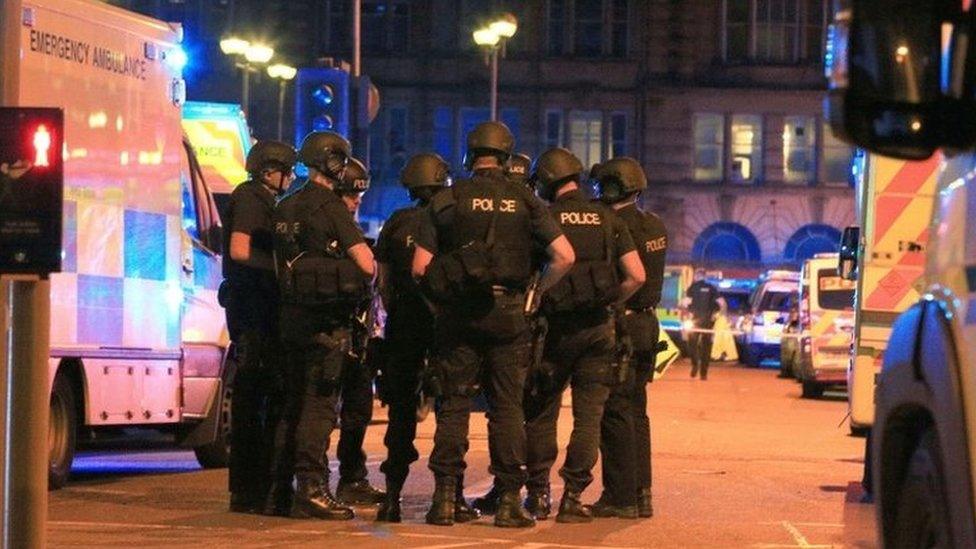
- Published28 September 2020
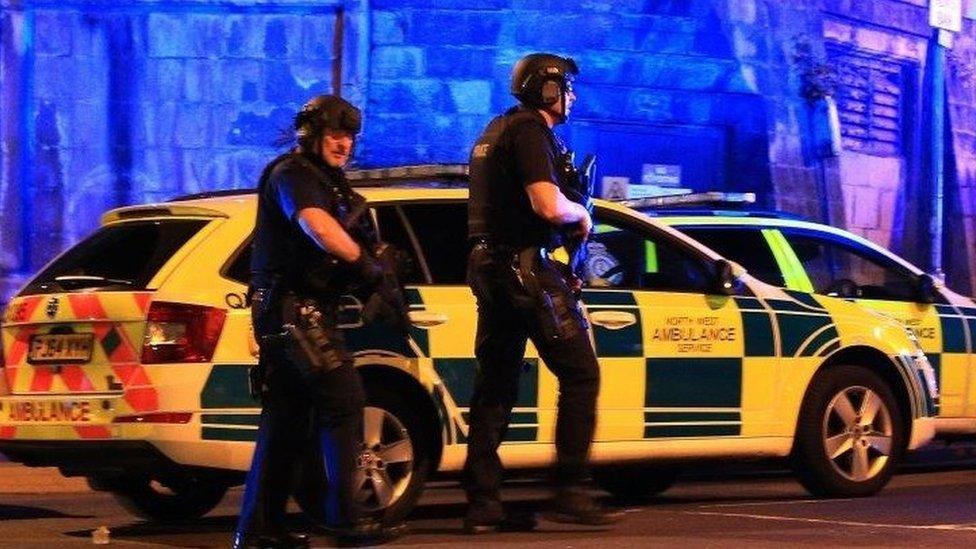
- Published9 September 2020
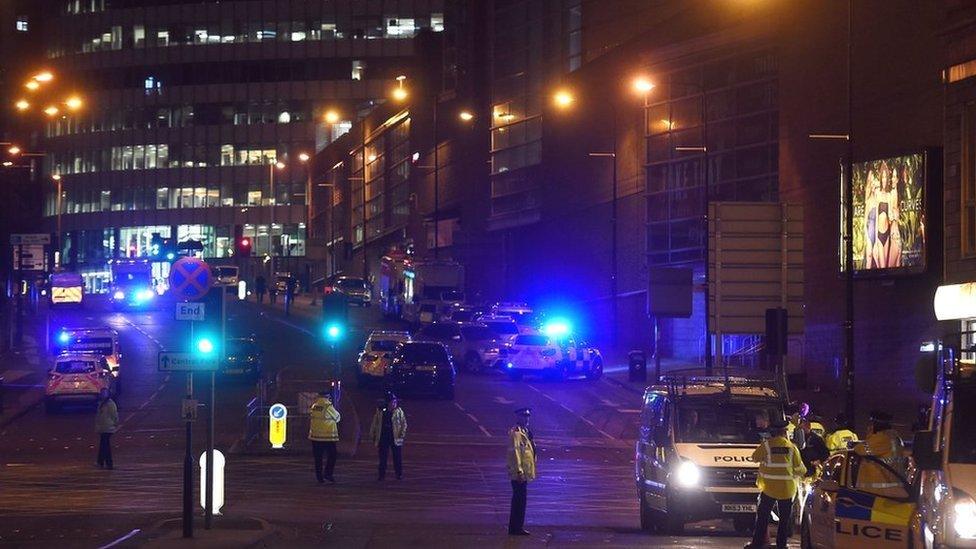
- Published8 September 2020
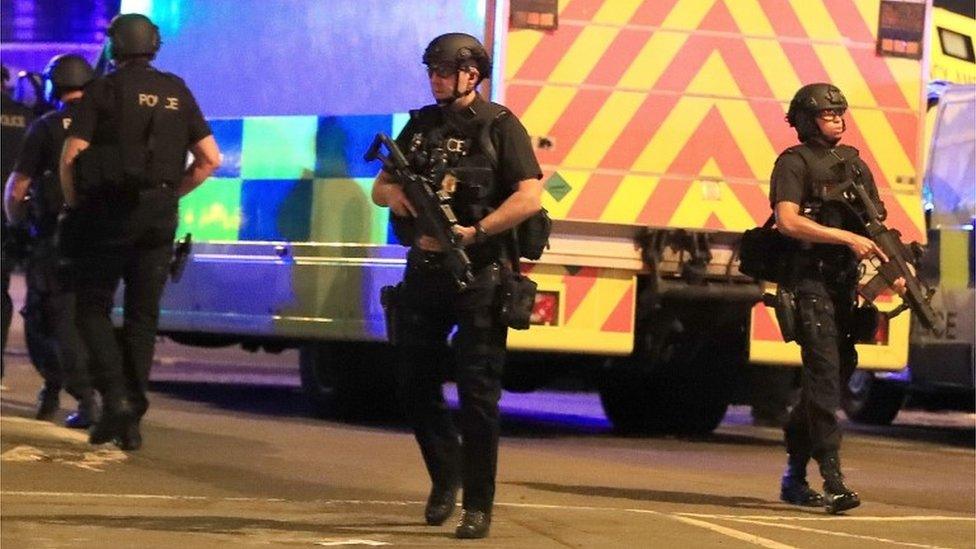
- Published7 September 2020

- Published7 September 2020
